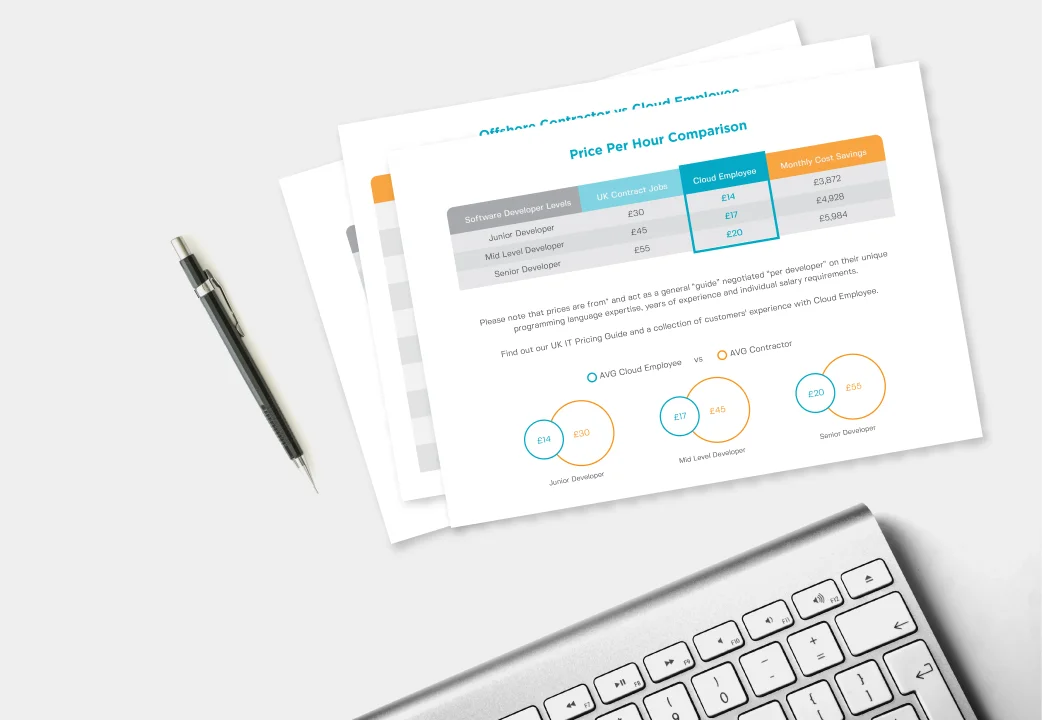It can be a struggle for developers to find the company and employer that’s just right for their needs and wants. Finding an employer these days is more than just looking for the most competitive compensation provider. Especially because of the demanding nature of the job, it’s also important to find the employer who can support and promote work-life balance.
There are ways to help you narrow down your choices and make job seeking easy for you. Here’s a to-do list to help you find the right employer for you.
Send your CV wisely
Avoid this common mistake most job seekers do: don’t send your CV to all the companies you find. Neither should you send to all companies with vacancies, even when they aren’t what you’re looking for. Don’t do it just for the sake of getting employed. This takes time and effort from you, and this might also divert you from the career path that you really want.
Instead, send your CV smartly. Read up on the companies who have posted openings, and research on them to see if they are needing someone like you or the expertise you have. This way, you’re immediately limiting your choices to those you like and prefer to work at.
Make a wish list
Yes, a wish list. For the purpose of this write-up, let’s call it a “Job wish list”.
You can start building this list by identifying the things that matter to you. Are you looking for career advancement? Comprehensive training? Good benefits? Or maybe you want to work having flexible schedule options? Also, is the office location an important factor for you?
You can also look at the company itself while building your job wish list. List down important characteristics. Do you want to work at a starting company or a well-established firm? Are you looking for a laid-back environment or a competitive one? As with the office space, do you prefer a workspace that has more a natural light? Are you looking for an office with a recreation area?
Have fun in listing down things you want to include in your wish list, but keep in mind that it’s hard—maybe even impossible—to find a match that provides all the things you listed down. However, lists like these will still be helpful in making your job search easier, as they help you filter out those companies who are unlikely to provide what you’re looking for.
Read up on the company, and the interviewer, if possible
Interviewers are actually interested in applicants who show interest in them and the company.
When contacted for an interview, make sure to start reading up on the company. You can also find the contact person’s name, probably as a signature on the email, and try reading up on the interviewer as well if any information comes up in your search or in LinkedIn. This will not only give you an edge over the other applicants, but this also helps you know more about the company and the person interviewing you so you can prepare accordingly.
Come to the interview prepared with questions
As much as possible, don’t answer the question, “Do you have any questions for me?” with a “No.”
This is one is related to Point #3. After reading up on the company and the interviewer, it’s best that you come to the interview prepared not only to answer but also to ask. Just as how the interviewers are asking questions to find the best candidate, you can apply the same idea and ask questions to find the best employer. There has got to be things you want to know about the job, and the interview is your perfect chance to ask whatever you have to ask.
Here are some questions you can probably take to your next interview, as suggested by IT Business Edge:
- How would you define your company values?
- If I’m hired, what would you expect me to have accomplished in a year?
- What’s the greatest challenge your company has faced? How did you overcome it?
- What’s the most essential trait a new team member should possess, and why?
- Why have people left this position voluntarily or involuntarily?
- Where do you see your company in five years?
Be confident to be who you are
While the popular advice in interviews tells you to impress your interviewers, you should be careful not to go too far and pretend to be someone you’re clearly not. Be confident to be who you are, and present yourself in a way that shows your confidence.
Do not ever lie about something you can’t do. If the interviewer happens to ask a question you don’t know the answer to, don’t make stuff up. Instead, you can start by answering what you do know, or tell the interviewer the steps you would take to solve the problem or to answer the question. Aside from your answer, interviewers are also curious about your thought process, so this might be helpful for you.
Remember: don’t try to get a job by contorting yourself into someone you’re not. In the long run, you’ll feel unsatisfied and unhappy with the job, and you’ll also realise that it’s not the path that will further your career.
Don’t be brutally honest
Take everything in balance. Be confident to be who you are, but don’t be brutally honest by revealing too much information about yourself. Be careful to not say things that will put yourself in a bad light. You may talk about your side projects, your other hobbies, and your interests, but remember that your interviewer wants that information about you which are related to the job you’re applying for.
Don’t reveal all details about yourself, thinking that “honesty and transparency are key”. While it’s good to tell as many details of your personality as possible, you also wouldn’t want to say something that will put you at a disadvantage.
Pay attention to everything
Don’t waste your trip to the company’s building for the interview. While you’re there, take the chance to observe the office and everything in it: the workspace, the atmosphere, and how the people around you work. Take note of the interview process as well. How did they handle interviewees like you? Did the interview start early? Was the whole process smooth?
These small things are indicators of the bigger picture—the work culture in that office. As early as this stage, you will start to get a feel whether you’ll like it working there or not.
Find a place where you fit in
Here’s a big no-no when finding the right employer for you: don’t make yourself fit in the place. Don’t act like someone you’re not nor try to do things you’re clearly not skilled at. Look for a place where you fit in. The result? You’ll easily find personal development and career advancement as well, and you’ll feel comfortable being you and putting your strengths to use.
Look for career progression
Especially if you’re looking to stay with a firm for a long time, it’s best to consider opportunities for continuous learning and career progression. It might seem challenging to take on big tasks or do unfamiliar assignments at first, but that will leave you with a lot of room for learning and improvement.
Career progression should not only be considered as a raise in pay or a change in position or even a title change. Career progression is also progressive learning. When searching for employers, don’t overlook opportunities for continuous learning.
Look for work-life balance
The nature of a programmer’s job can be very stressful and draining at times, especially because of the different schedules required by the clients and projects, and the stress levels that it brings to the programmer. This is why it’s important to look for a company which prioritises work-life balance.
You can check how the company treats work-life balance through the use of your connections. Ask your peers or anyone you know who is affiliated with the company or who has previously worked at the same job post. If you value work-life balance greatly, finding out how the companies view it will help you find the right employer that values the same things as you do.
Want to work where you’ll learn and grow a lot in your career? Join us at Cloud Employee! Follow us on Facebook, Twitter, and LinkedIn for our latest updates and job postings. Send us your updated CV to [email protected] with the position you're applying for in the subject line.
Hire A Developer Now!
Featured Article

How to Become a High-Performing Developer

CSS grid vs. Flexbox: which to use when?

Download Our Developer Pricing Guide
We did an analysis on the difference between western and Philippines developer salaries. Uk, USA and Australia pricing comparisons available.
Download